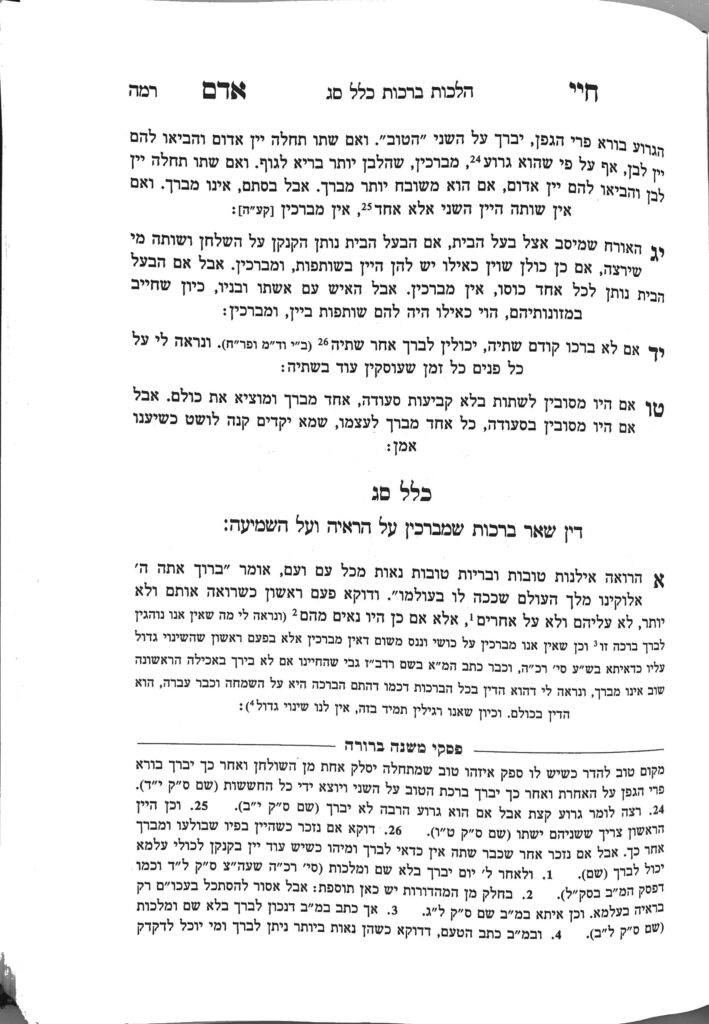We have finished Klal 62 and have a few points to clarify.
The bracha of hatov vehametiv only applies when the second wine is brought out while the first wine is still available. If the second wine is brought out because the first wine is finished, the bracha is not recited. We have learned (shiur 1207) that hatov vehametiv is made in appreciation for the variety and quantity of wines with which Hashem has blessed us. If a person brings out a second wine not out of variety, but out of necessity, they do not make the bracha.
We have learned (shiur 1207) that hatov vehametiv is only recited when a guest brings a second bottle and keeps it outside until after hagafen is made on the first bottle. However, we mentioned that the host and other guests may need to make a new hagafen on the second bottle as well, since they did not have it in mind at the time of their original hagafen. There are two possibilities:
If a person is nimlach, they need a new bracha. We have learned (shiur 1159) that nimlach refers to intent to limit one’s eating. A true nimlach can sometimes be tricky to apply, because many people will decide they are finished eating, only to continue eating a few moments later. However, if one truly decided they were finished eating, and then changed their mind and decided to eat more, they would need to make a new bracha (see more in shiur 1159).
The Mishnah Berurah writes that when it comes to wine, there is an automatic nimlach after one cup, and they would need a new bracha. It appears that at the time of the Mishnah Berurah, the practice was to only have one cup of wine at a meal, so a decision to have a second cup would fall under the rules of nimlach. However, if a person knew they were planning to have multiple cups, or if they regularly have multiple cups (known as stam daas), they would not be considered a nimlach and would not need a new hagafen.
Even if a person generally drinks multiple cups, we need to consider whether one’s bracha can extend to an item not yet in one’s domain or expectations at the time they made their bracha. The Shulchan Aruch (in siman 206) writes that if the new food is brought while the first food is still on the table, the bracha can extend from the first food to the second food. Since we just learned that hatov vehametiv only applies when the first wine is still extant, this halacha will always be fulfilled by definition (see further regarding this halacha in shiur 1161 and 1164).
Summary
- Hatov vehametiv is only recited if the first wine is still available and on the table.
- If a person had limited their bracha to only one cup of wine, and subsequently was nimlach and wished to drink from the second bottle brought out, they would not make a hatov vehametiv, but rather hagafen.
- If a person knew they were planning to have multiple cups, or if they regularly have multiple cups, they would not be considered a nimlach and would not need a new hagafen, so they could recite hatov vehametiv on the second bottle.



